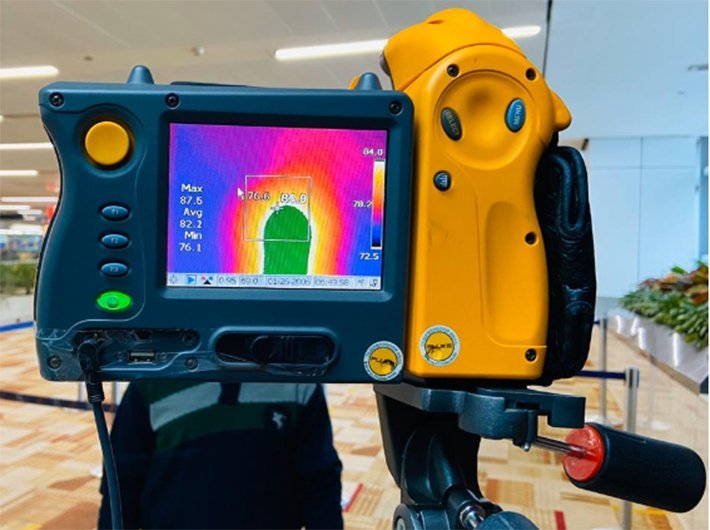An IPS officer shows how we can project the country as ‘Incredible India’ once again and attract tourists – by ensuring safety everywhere
The hospitality industry is one of the areas which were hit worst due to the Corona pandemic. Even then, the operators as well as owners in this field deserve congratulations for successfully overcoming the unimaginable impact of the pandemic. The fact that not only the industry has survived the crisis but is also hopeful of resuming all pre-pandemic activities with vigour indicates strong spirits of those working in this important, labour-intensive field. The aim should be not only restore the pre-Corona situation but also learn lessons from the past and improve on these in the years to come, and project ‘Incredible India’ once again to the world.
The industry needs to consider personnel policy which would create trust among the tourists. The personnel include not only employees but everyone associated with the industry. These include various service providers such as receptionists at airports, cab drivers, room attendants, and many others. It is a collective package. Training and briefing these persons creates tremendous difference. Several incidents of misbehaviour including rape of foreign women have been reported from time to time at several places. In many of these, the cab drivers and employees of the hotels were responsible. It is imperative that new technological interventions including the deployment of GPS and CCTVs are adopted at the earliest and upgradation of the same needs to be considered at regular intervals after conducting security audit with the help of security experts. While recruiting the new persons at various levels, importance needs to be given to references from responsible persons rather than just certificates from some institutes. Efforts may be made to provide internship to young candidates in every major holiday season, such as winter and summer breaks, on regular basis from early stages so that they become aware about the requirements from the industry. This would enable employers also to choose right candidates at appropriate time. Apart from initial character verification, after every two years, background verification of existing candidates needs to be carried out before assigning them jobs close to the tourists.
Existing instructions regarding KYC and noting details of government ID, passport of the tourists are being followed more or less faithfully. These are being regularly shared with FRROs. Precautions need to be taken about Indians staying overseas who may not disclose about their nationality. These are equally covered under the rules related with foreigners. Before admitting a man and a woman in the room, maximum precautions need to be taken without encroaching on their privacy. Special care should be taken about adolescents, as many of these girls may be minors and attract legal penalty, if detected.
At many places, premises and surroundings of the hospitality industry have become centres for selling and consuming prohibited drugs. Incidents of cheating, robbery, theft of customers and molestation of customers and employees must be prevented by constant supervision, use of technology and proper deployment of responsible personnel. Preventive measures pertaining to these crimes are well known, and hence are not elaborated here. However, there should be no effort to suppress these offences under any circumstances. Attention also needs to be paid to the environmental hazards being created due to emissions from kitchens and bakeries run by the hotel industry. In fact, residents staying in the surroundings of big hotels keep on constantly complaining of respiratory problems, as well as air, sound and light pollution. At least after the corona pandemic, the industry should take these problems seriously and consciously address these with modern technological interventions.
Going beyond the normal, attention needs to be paid to the source of crimes. According to the National Crime Records Bureau (NCRB), an increasing number of children are observed indulging in heinous crimes and the number of children in conflict with law is multiplying geometrically. As a part of corporate social responsibility (CSR), the hotel industry may consider focusing on these children. Details of these children are available with every police unit. With the help of the Juvenile Justice Board and the District Child Welfare Board, they may consider financing few counsellors to look after these children and provide them necessary vocational skills. This action would enable these children to join the mainstream and contribute to the economic growth. The hospitality industry should consider giving employment to those out of this stock, whom they may consider deserving. I made this experiment while working as Commissioner of Police. Out of 74 such children, we could restore 56 of them to become normal citizens. Though this may appear to be a negligible number, collective efforts of all and the government officers would help these children to come out of their hopelessly deprived conditions.
Lastly, while appreciating concerns of the industry to get their works done quickly through the red-tape of the bureaucracy; they should not encourage corrupt practices. If they are determined not to give bribe, they can certainly prevent it. As is known, the provisions in the new Prevention of Corruption Act, 2018 provide stringent punishment to owners as well as their agents if they are detected giving bribes to get their work done. As leaders in the hospitality industry representing India globally, it is imperative they follow best practices.
Praveen Dixit, an IPS officer, retired as DGP of Maharashtra.
